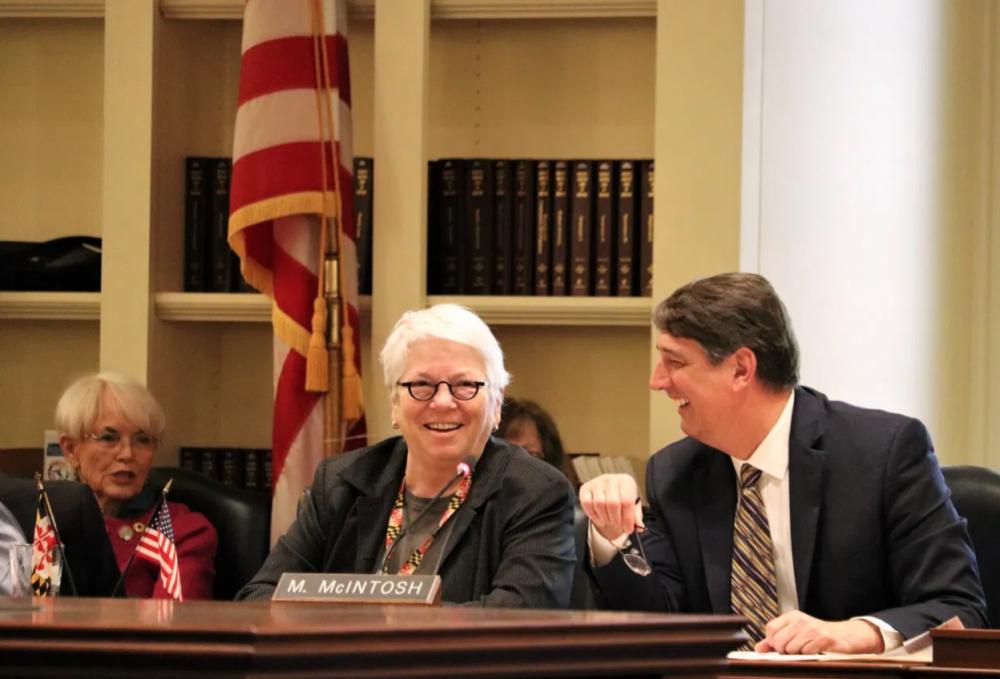The Maryland House of Delegates approved a $47.9 billion budget plan on Tuesday, after a series of extraordinary steps to speed the budget approval process as the state battles the spread of the COVID-19 virus.
“Each year we are faced with a different set of circumstances dictating how we achieve the goal of providing a balanced budget that meets the needs of our state. It is safe to say that the challenges we currently face are unlike any we have experienced before,” House Appropriations Chairwoman Maggie L. McIntosh (D-Baltimore City) said this week. “…We are very aware that the situation that we face with this new virus does not currently have an end date and could directly impact our economy,” McIntosh said.
The budget bill and accompanying Budget Reconciliation and Financing Act maintains more than $1.2 billion in the state’s rainy day fund, and last-minute budget adjustments boosted the unallocated general fund balance to $231.3 million, an effort to give Gov. Lawrence J. Hogan Jr. (R) more flexibility in spending as the state faces unknown fiscal challenges with the spread of the novel coronavirus.
On Tuesday, the House approved an additional amendment that would allow Hogan to transfer up to $100 million from a revenue stabilization account to help with the state’s COVID-19 response.
The bill moves on to the Senate, where final approval without further changes is all but guaranteed.
That’s because the Appropriations Committee and Senate Budget and Taxation Committee met jointly in a historic meeting on Monday to shuffle through about four dozen consensus amendments to the budget bill and Budget Reconciliation and Financing Act. The goal was to pass a final consensus budget without requiring negotiations by a conference committee.
“This is an extraordinary time and it calls for extraordinary cooperation,” McIntosh said at the meeting, sharing a microphone in her committee room with Budget and Taxation Chairman Guy J. Guzzone (D-Howard).
The budget measures came to the House floor with more than 90 amendments from the Appropriations Committee, plus an additional 50-or-so consensus amendments agreed to by the House and Senate committees. On Monday, four anti-abortion amendments offered by House Republicans were rejected after a short debate.
On Tuesday, the final budget plan was passed by a wide margin, including support from Republican members of the chamber.
“Our budget committee has taken a budget from our governor and made it better and made it responsible,” House Minority Whip Kathy Szeliga (R-Baltimore County) said, encouraging other lawmakers to take a moment to appreciate the work of the committee.
Szeliga said she was especially pleased that the budget included a projected structural surplus of $67 million in 2021.
Also included in the budget plan is $7.2 billion in funding for public education, including $362 million to support implementation of the Blueprint for Maryland’s Future education reform plan.
The legislative plan restores about $88 million to legislative priorities not funded by the governor. That includes $39.5 million for a proposed rate increase of 4% for community service providers in the Developmental Disabilities Administration, behavioral health providers and Medicaid service providers.
By Danielle E. Gaines



Write a Letter to the Editor on this Article
We encourage readers to offer their point of view on this article by submitting the following form. Editing is sometimes necessary and is done at the discretion of the editorial staff.